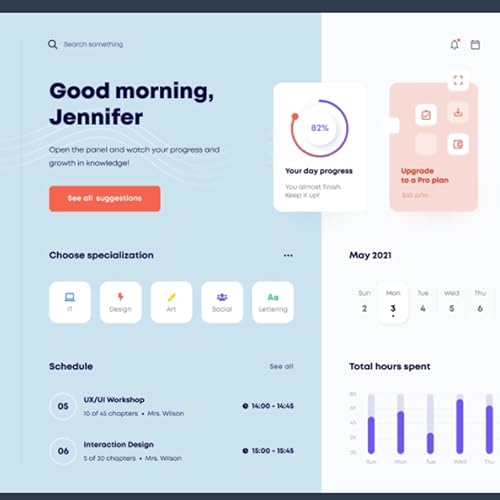Businesses are seeking for methods to get insights into their operations, customers, and markets in today's data-driven environment. Dashboards have grown in popularity as a tool for visually attractive and intelligible data presentation. Yet, creating a dashboard that is efficient and practical may be a difficult undertaking. These are some steps to building a dashboard that matches your requirements.
Step 1: Define the purpose of the dashboard
Determining a dashboard's purpose is the first step in creating one. What queries do you want the dashboard to respond to? What metrics should be monitored? Who will be utilizing the dashboard, and what will they need? The dashboard's objective will direct the design process and guarantee its usefulness and relevance.
Step 2: Compile the Information
The next stage is to acquire the data once you have determined the dashboard's goal. This might include gathering information from many sources, cleaning and formatting the information, and developing a data model. The data must be correct, current, and relevant to the dashboard's objectives.
Step 3: Choose a tool for visualization
The next step is to choose a visualization tool that suits the data and the dashboard's objectives. Tableau, Power BI, and Google Data Studio are just a few of the many accessible tools. It is crucial to choose the tool that best suits your requirements since each one has unique strengths and shortcomings.
Step 4: Create the dashboard
Designing the dashboard comes after selecting a visualization tool. This entails choosing the right visualizations, organizing them logically, and adding any required labels, titles, and other components. With a clear hierarchy of information, the design should be simple to use and navigate.
Step 5: Evaluate and improve
After creating the dashboard, it's crucial to test it and make adjustments depending on user input. This might include updating the data that is provided, adding or deleting visuals, or altering the design. Testing and improving the dashboard will help make it more helpful and efficient.
Step 6: Put into practice and keep up
The dashboard's implementation and ongoing maintenance are the last steps once it is finished. This may include automating data refreshes, teaching users on how to use the dashboard, and upgrading the dashboard as necessary depending on changes in the data or the company. The dashboard should be reviewed often to make sure it is still serving its intended function and to make any required adjustments.
Conclusion
The process of creating a dashboard may be complicated and difficult, but by following these guidelines, you can make sure that your dashboard is successful, practical, and satisfies your objectives. You may build a potent tool for learning about your company by identifying the goal of the dashboard, collecting the data, selecting a visualization tool, building the dashboard, testing and improving, putting it into use, and maintaining it.
Hosted on Acast. See acast.com/privacy for more information.
 1 min
1 min Apr 28 2023Less than 1 minute
Apr 28 2023Less than 1 minute Mar 28 2023Less than 1 minute
Mar 28 2023Less than 1 minute Mar 25 2023Less than 1 minute
Mar 25 2023Less than 1 minute Less than 1 minute
Less than 1 minute Feb 27 2023Less than 1 minute
Feb 27 2023Less than 1 minute Less than 1 minute
Less than 1 minute 1 min
1 min